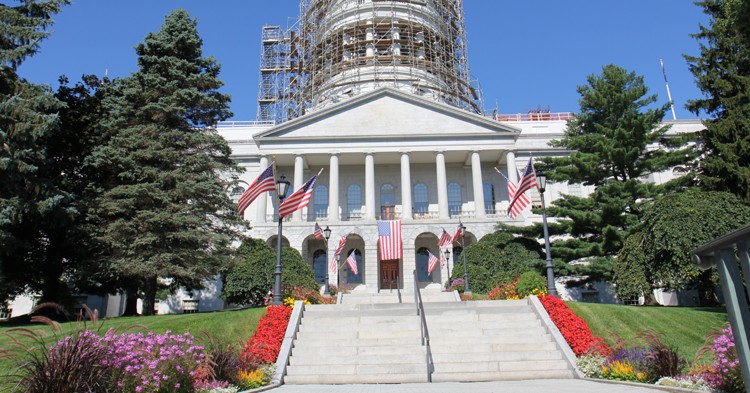Monday’s Senate vote against a bid to develop a resort-style casino in Southern Maine added to last week’s failure in the House might be the proverbial last straw for a proposal lawmakers have been considering since last year.
The proposal fell short by two votes, 16-18, in an effort to advance on Monday, after which time the Senate concurred with the House of Representatives 83-61 defeat of the proposal last week, according to the Portland Press Herald. The two together indicate that the bill will not be progressing through the Legislature this year. The proposal has received a thumbs-down from Governor Paul LePage, which means that even if proponents can obtain enough votes to get it to his desk a veto is still likely. A two-thirds vote in the Senate and House is required to override a veto. No debate was generated by the Senate vote.
Much like previous gambling bills, the argument over building a casino that proponents say would garner the state more than $500 million is one of geography. Strong opposition from Lawmakers from eastern Maine, as well as those from the western portion of the state, where the Hollywood Casino is located in Bangor and the Oxford Casino is located, respectively, has stalled the proposal. Those opponents say they don’t believe a third casino could be supported by the state without revenues at the existing facilities being adversely affected. Lawmakers in southern Maine, however, have been mostly supportive.
A competitive bid process would be established by the bill allowing for a casino to be built in either York or Cumberland counties subject to approval by county voters. Similar to last year’s proposal that stalled, the proposal was altered to increase the license fee, from $25 million to $50 million, paid to the state. If either of the two existing casinos in Bangor and Oxford closed within five years of the opening of a resort casino in southern Maine, the fee would be divided between a so-called mitigation fund and the state’s General Fund.
Veterans organizations, the state’s highway fund, the harness racing industry, gambling addiction prevention, the host municipality, off-track betting facilities, the city of Bangor, the town of Oxford, state education funding and a host of other programs and causes would receive the divided revenues from the casino. The long list attempts to alleviate feelings of interest groups in the past of being left empty-handed by such distributions, which has contributed to the defeat of casino proposals.
Since being introduced last year, the bill, L.D. 1280, has been heavily lobbied. Proponents and stakeholders included developer Ocean Properties, the construction company Cianbro, and the harness racing industry.


